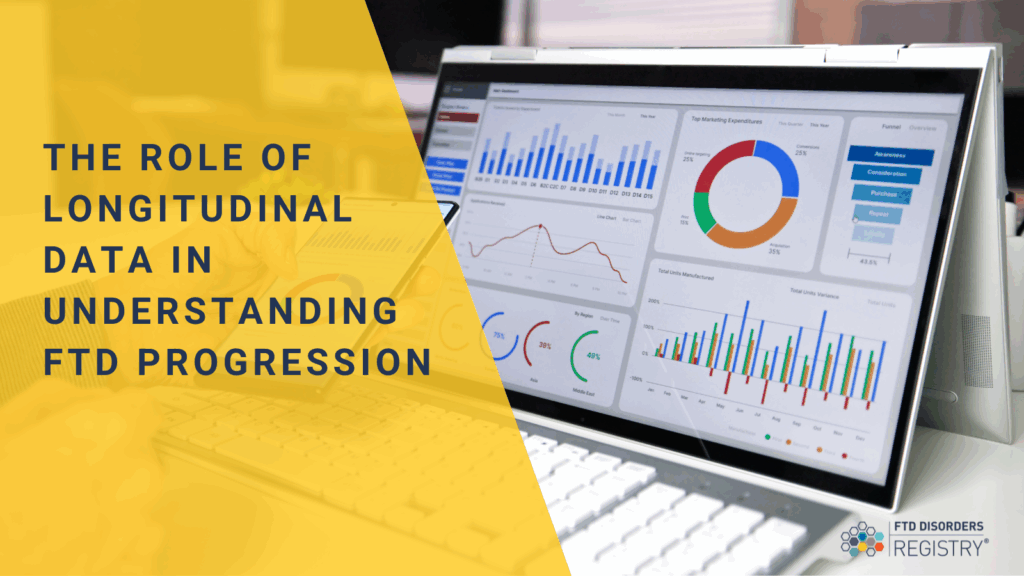PRESS & NEWS
The Role of Longitudinal Data in Understanding FTD Progression

Learn how collecting longitudinal data helps researchers track FTD progression over time and develop more effective diagnostics and treatments.
Frontotemporal degeneration (FTD) is rare, complex, and highly variable. No two individuals experience it in exactly the same way. For researchers and clinicians working to understand how FTD disorders progress over time, one type of data stands out as particularly valuable: longitudinal data.
But what exactly is longitudinal data, and why does it matter so much in FTD research?
What Is Longitudinal Data?
Longitudinal data is information collected over time, rather than at a single point. It tracks the same individuals or families across months or years, providing a dynamic picture of how symptoms develop, shift, or respond to interventions.
In FTD disorders research, this could include:
- Changes in behavior, language, or movement
- Evolving patterns in care partner burden
- Cognitive test scores over time
- Updates to diagnosis or genetic findings
- New participation in clinical trials or treatments
This kind of data allows researchers to look beyond snapshots and begin to understand the trajectories of the disease.
Why Longitudinal Data Matters in FTD Research
FTD disorders includes several subtypes, and symptoms can change rapidly or slowly depending on the person. Longitudinal data helps uncover:
- How different forms of FTD progress over time
- When certain symptoms tend to emerge or worsen
- Which early signs may predict more rapid decline
- How caregiving needs evolve
- Whether certain interventions may be associated with slower progression
Because FTD disorders affect people under 65 more often than other dementias, capturing the long arc of someone’s journey from first symptoms to diagnosis and beyond is essential to designing better clinical trials, earlier interventions, and more supportive care.
The Registry’s Role
By joining the FTD Disorders Registry and keeping your information up to date, you are contributing valuable longitudinal data. Each time you complete a follow-up survey in the Registry Research Study, share a diagnosis update, or participate in a research opportunity, you are helping scientists piece together the bigger picture of how FTD unfolds.
Researchers with approved access to de-identified Registry data can analyze trends across hundreds or thousands of participants. They can identify new research questions, design better trials, and ultimately move us closer to effective treatments.
Your Experience Matters
Even when a study is not actively enrolling, the data you provide continues to have impact. The lived experiences of people diagnosed with FTD disorders, care partners, and family members are central to unlocking the mysteries of this disease. The more consistently we gather that data over time, the clearer the path becomes.
Together we can find a cure for ftd
The FTD Disorders Registry is a powerful tool in the movement to create therapies and find a cure. Together we can help change the course of the disease and put an end to FTD.
Your privacy is important! We promise to protect it. We will not share your contact information.



